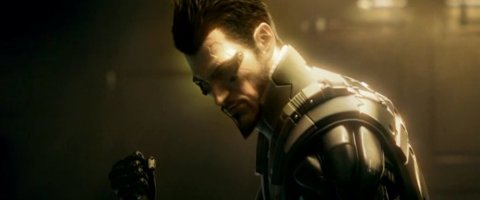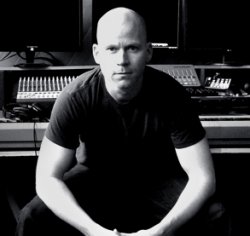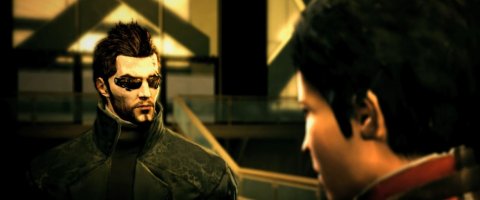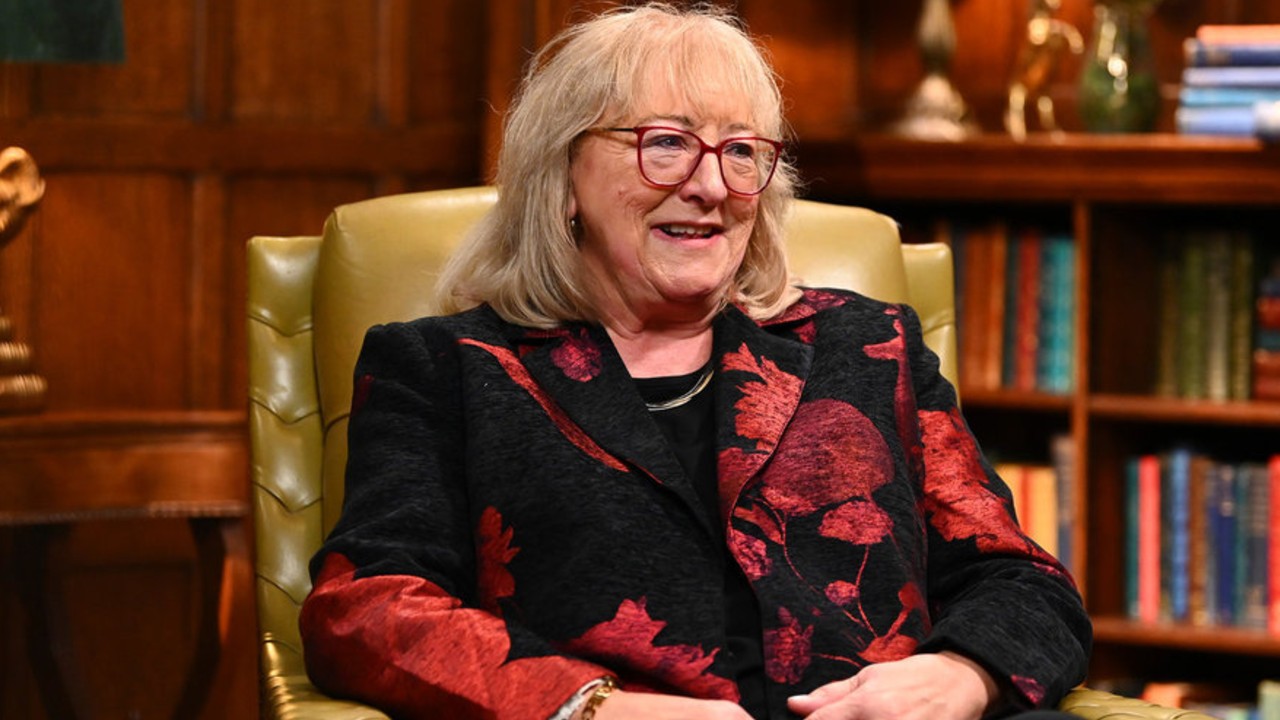Interview: Michael McCann Discusses Deus Ex: Human Revolution Soundtrack

With Deus Ex: Human Revolution soaking up all kinds of positive reviews and good gamer feedback, we had a chance to ask a few questions to the composer about one of the main aesthetic driving forces behind the game…the music.
Michael McCann (pictured below), also known as the artist Behavior, has worked on a number of high profile film, game and independent projects throughout his career, including Splinter Cell: Double Agent and the theme song for ReGenesis. Check out what he had to say about the newest Deus Ex game below.

Gaming Blend: I have to say, when I first heard the music for Deus Ex: Human Revolution in that remarkable E3 2010 trailer I was nearly floored at how much depth that one song, Icarus, has. I mean, that song really seems to capture a lot of complexities and scope of the Deus Ex, cyber-noir world without being overly techno or synthetic. How did you even come up with theme that fit the Deus Ex universe so well?
Michael McCann: Oh wow, thanks! I was really lucky with that trailer in that I had about 2 months to build the full theme. I was working on the game at the same time, so I could go back and forth between the trailer and the game and really take my time with it. The full 5 minute version of the trailer has 6 sections, and each section was created separately mainly because there were many different versions of the trailer that used different pieces of the full Director’s Cut.
In the beginning, the entire trailer was scored with just piano, vocals and a bit of sound design (for the rise up to the sun). These were just the building blocks of how the lead melodies and chording would carry over the whole trailer. Then it was a matter of deciding what instruments should take center stage in each section. In the end there are about 30 instruments, with the last instrument I created being the synth arpeggios. That arp is what I think really pushes the whole track into cyber-punk territory but because all the backing is more organic, it helps bring the acoustic / electronic hybrid to the forefront, which I think helped introduce people to the style of the whole score.
GB: When you signed on to do the Deus Ex: Human Revolution soundtrack, did you already have an idea of what direction you wanted to take the music or was it something that was established after going over a lot of concepts with the rest of the team? In some regards it seemed like you were a perfect fit for the position, especially after listening to the song Watchtower.
Your Daily Blend of Entertainment News
McCann: The soundtrack evolved quite a bit actually. What started out very electronic in 2008 became quite a bit more organic in 2010. I worked on the score off and on for over 3 years, from 2008 to spring 2011. Even though the music changes intentionally to reflect changes in the story, I was also changing over that time, and bringing new ideas / techniques to the score. What I didn’t expect when starting the project was the very strong philosophical / religious / political themes that permeate the story. Reading the script for the first time really opened my eyes to how big the game world really was. To reflect those very human themes, the score needed a strong acoustic side which took the form of vocals / acoustic instruments. This electronic / acoustic hybrid is something I’ve been experimenting with a lot in past projects, and is definitely apparent in the track Watchtower – a track I wrote while on break from the game in 2009.
GB: Were there particular games or movies that helped influence certain themes or elements that would be used for specific tracks? I kind of got a sense of Metal Gear meets Vangelis when listening to some of the sample tracks off the Deus Ex soundtrack.
McCann: Definitely – not so much games, but definitely movies. On the electronic side, there was an influence from John Carpenter and Tangerine Dream’s scores, as well as Vangelis’ work. On the acoustic side, there was a strong influence from Lisa Gerrard / Dead Can Dance, Ennio Morricone and Elliot Goldenthal, mainly in terms of textures / mood rather than actual musical concepts. Outside of movies, Massive Attack, Amon Tobin, Ben Lukas Boysen, Aphex Twin and Brian Eno were all strong influences.

GB: How challenging was it to come up with original tunes for this game and was it more or less challenging than working on the Splinter Cell: Double Agent score?
McCann: I would say more challenging than Splinter Cell: Double Agent. For the SC:DA score there was much less music, and the music was also very melodic which in my opinion made things easier to put together. I spent a lot of time building the main themes and then build everything else around them. For DX:HR there are around 200 pieces of music, spanning a 25-40 hour game. Because we approached the music more as atmosphere – relying more on harmony, rhythm and mood than melody, it meant trying to find the emotional core in a very dense wall of sound. It becomes a much more ambient and immersive experience where the music has to really sit inside the environment rather than as a soundtrack sitting on top of everything. For this reason, you can really mess things up if even just one sound feels out of place.
GB: When it comes to composing a soundtrack for a prequel, did you focus more on trying to implement original themes for the score to coincide chiefly with the story and characters, or was it a balancing act of trying to keep certain elements true to what was established with the first two Deus Ex games?
McCann: Eidos Montreal and I were both very adamant about creating a new musical world for this game. Although we have a couple references to the first Deus Ex early in the game, we knew that the story, themes, colors, atmosphere and characters were unique and needed to be respected outside of the previous titles. Deus Ex: Human Revolution takes place 25 years before the first game. The technology is less advanced, the characters are from an earlier generation, the political struggles are different, and the strong ‘Icarus’ metaphor is much more predominant / literal than in the first game. For all these reasons, we really needed a new musical sound – something that belonged to the world the studio had created, rather than trying to fit the first game’s music into this one. In the end, I think we definitely achieved the core feeling of the first game, but using different tools to achieve it.

GB: From what I’ve heard off the sampler the soundtrack for Deus Ex: Human Revolution will be spectacular, and I’m not just saying that because I’m a fan of cyber-noir, futuristic espionage thrillers. But I have to ask, for those willing to buy the soundtrack for the game, is there an exact release date scheduled for the entire OST to become available or is that still top secret?
McCann: At the time of this interview I can say that the soundtrack is in the works but I don’t yet have an exact release date. We will be announcing all the details about the release as soon as they are available!
GB: On a final note, can you tell us a little bit about what project(s) you’ll be working on next?
McCann: Actually, vacation is next. Haha. A few weeks travelling around a bit, and then I’m back into the studio working on some personal tracks. The track Watchtower you mentioned was part of a bunch of songs I was working on before DX:HR, so I’m going to spend some time putting all that unfinished music together. After a very long project, I usually like to take a bit of time and just write music for myself. As much as I love working on film / tv / games, it’s still important to write music for myself, without any visual / story influence.
Our thanks to McCann for talking about the latest cyber-noir espionage action game from Eidos Montreal. You can pick up a copy of Deus Ex: Human Revolution from retailers and e-tailers nationwide for the Xbox 360, PS3 and PC. For more info feel free to visit the Official Deus Ex Website.
Staff Writer at CinemaBlend.

